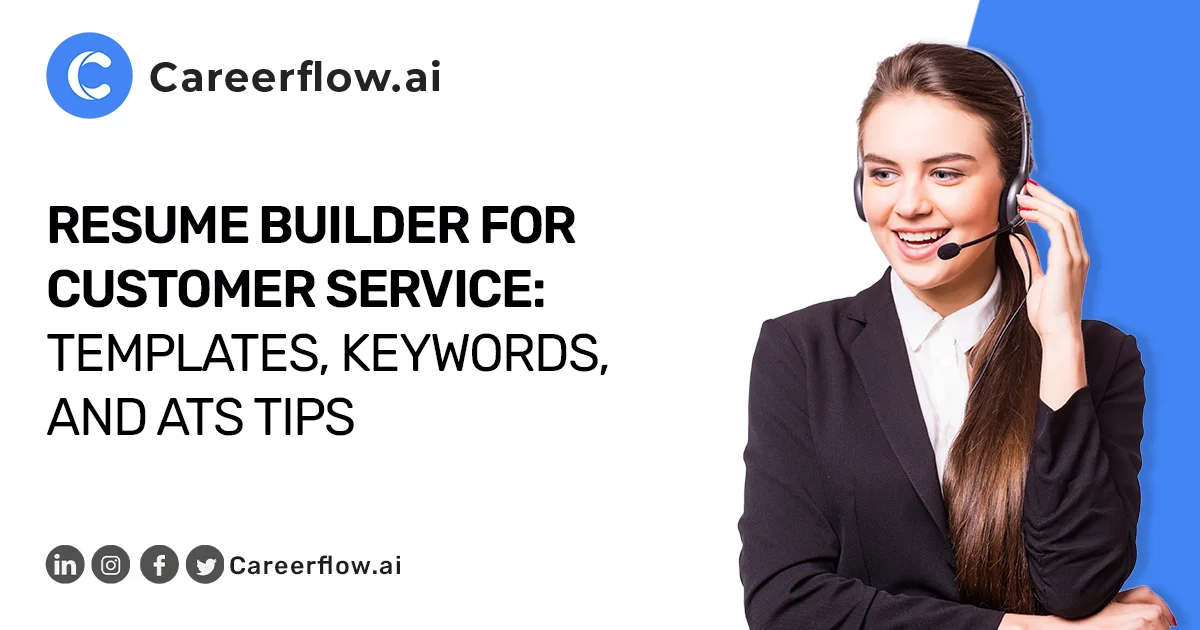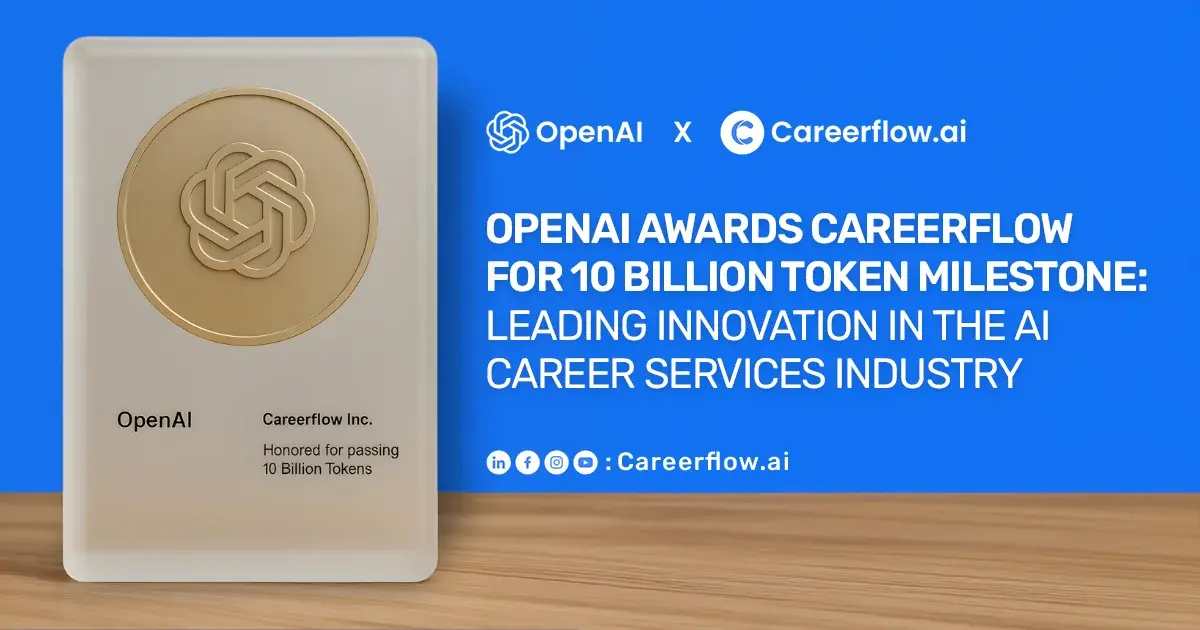With every new year comes a chance to make new resolutions. And if your 2024 resolution is to secure a job, then you've come to the right place!
But what is the first step in a job search?
Updating resume? Preparing a list of target companies? Or applying to a bunch of open roles?
It’s none. Creating an actionable job search plan 📋is the first step in job searching. By establishing an effective plan, you can completely refocus your job search and significantly reduce your efforts. Planning a job search is similar to planning a holiday before going on vacation. Each is based on the same logic: making the most of the process:
Why do you need to create a job search plan in 2024?
Here are some reasons why you should create a job search plan in 2024:
- To understand the WHY, WHAT, and HOW of your Job search– Job hunting is a long process, thus keeping yourself motivated throughout the journey is a task in itself. But if you exactly know why you are doing what you are doing, you are less likely to give up.
- Creating a balance between your ambitions and actions- Many people set incredibly high aspirations for their careers (which is great), but achieving these super-ambitious goals requires short-term actions. And in order to achieve this, you need to develop an effective job search plan.
- To identify and target the right companies – A job search plan allows you to identify and target companies that truly align with your career goals and values. This helps you to focus your job search efforts on companies that are more likely to be a good fit for you.
- To measure your progress – A job search plan allows you to measure your progress and make adjustments as needed. This will help you stay on track and make the most of your job search efforts.
Companies like META, Twitter, and Amazon laid off thousands of employees last year while companies like Salesforce and ShareChat continue to lay off in 2023. Because of this unusual situation, it's more critical than ever to have an effective plan to land a job.

Identify your target roles and companies
1. Researching target job roles: what's the best way?
The process of deciding on your target job roles may involve the following steps:
- Search on the internet- Read detailed guides written by experts, medium posts published by professionals, or social media posts shared by people across the world. Get a quick overview of your target job role.
- Read job descriptions – Now the second step is to see what the company expects from your target role. Check the roles and responsibilities, qualifications required, and average salary carefully.
- Talk to people– There is no doubt that many people have already worked in your target role. Talk to them and ask specific questions about your role. A few of them could be:
- What are the tasks you perform in your job role on a daily basis?
- What is one thing you absolutely love about your job?
- What is one thing you absolutely hate about your job?
- What are the future possibilities and growth opportunities that this role could possibly open up?
Now, assess whether your expectations for a role are aligned with reality.
Note: Avoid bombarding your professional network with Google-able questions (just Google them! 😉).
2. Researching target companies: what's the best way?
- Find the intersection of companies still hiring for your target roles and the companies you want to work for.
- Read articles on Google, watch related videos, and read reviews shared by employees on Glassdoor and Indeed. During your research, you should consider all relevant factors– remote work policy, work culture, growth opportunities, anonymous feedback from employees, and the work profile for your target role.
- Reach out to people in your professional network who are working in your target companies and ask them specific questions.
- What do you like most about working at the company?
- How does the company evaluate employee performance, and what is the process for receiving feedback?
- Can you tell me about the team you work with, including the dynamics and structure?
- How would you describe the company culture?
Now check if these companies offer the opportunities you are looking for and if your future goals align with the overall goals and objectives of the company.
Note: If you're facing difficulty tracking the data of companies during your job hunt, keep an eye on Careerflow for an all-in-one job tracker (coming soon!).
Set specific and achievable goals

The process of job hunting is long and complex, so in order to succeed it is imperative to set specific and achievable goals. The following tips may help you through goal setting:
- Be realistic: Consider your qualifications, skills, and experience when setting your goals. For example, if you are just starting out in your career, you may need to start with entry-level positions or internships before you can move up to your final target roles.
- Set a deadline: Give yourself a realistic timeframe to achieve your goals. For example, set a goal to reach out to 2 people every day, apply for 10 jobs every week, and attend one networking event every month.
- Track your progress: Keep a record of your job search activities, such as the companies you have applied to, companies you are interviewing with, people you have reached out to, and recruiters you need to follow up with. This will help you see your progress and make adjustments as needed.
- Be flexible: Be open to different types of job opportunities, and be willing to make changes to your job search plan as necessary. Sometimes, it may be necessary to adjust your goals based on the job market or your own personal circumstances.
- Celebrate your success: Every time you achieve one of your job search goals, take a moment to celebrate. It will help you to stay motivated and positive 😊 throughout the job search process.
Show your work– create an online portfolio, learn in public and build a personal brand
Have you ever wondered why a few people constantly receive messages from recruiters and opportunities land directly in their inboxes?
The answer is a strong personal brand!
So no doubt, building a strong personal brand should definitely be part of your job search plan for 2024.
One way to do this is by "learning in public" and showcasing your work and progress to potential employers and industry professionals. You must have heard business people saying– build in public. The same applies to job seekers– learn in public 🧑💻.
- One key aspect of learning in public is creating a personal website or online portfolio. This website should include examples of your work, and any projects you've completed in your field. If you are working on a new project, keep sharing its progress with your professional community.
- Another way to learn in public is by participating in online communities and sharing your knowledge and insights. This could involve creating content on industry-related topics by writing posts on LinkedIn, publishing articles on the medium, and participating in online forums and discussion groups related to your field. This can help establish you as a thought leader in your field and increase your visibility to potential employers.
- If you attend any webinars, workshops, or networking events share your learnings and experience with your network.
Shadé Zahrai, an award-winning leadership strategist, says: “Unfortunately the results don’t always speak for themselves. If you want to accelerate your career growth, it’s not just about how hard you work, how talented you are, your experience, or your skills. You could be doing the best work but if no one knows about you and what you offer, you will be overlooked. This is why becoming intentional about your personal brand could be one of the most powerful career accelerators for you. ”
Hence, it doesn't matter how good your work is if it isn't visible to others. Here are a few examples of effectively sharing work with a professional network:
- Graphic designers can create graphics for their target companies and share them on their social media profiles tagging these companies. And this will help them attract a recruiting team.
- UI/UX designers can redesign the UI of applications of their target companies and can get interview opportunities.
- Software developers can create a sample project using the technologies they want to work with and share it on GitHub or other online code repositories. This will demonstrate your knowledge of technology and your ability to work on real-world projects.
Keep in mind that building a strong personal brand takes time and effort. However, it will pay off in the long run as it will help you stand out from the crowd and make a positive first impression on potential employers. Simply put, personal branding is your unfair advantage as a job seeker.
Apply, Reach out, and Follow up
1. Apply. Apply. Apply.
As of now, you are done creating a list of your target roles and companies, it’s time to actively start applying to openings through different websites.
Nikita Gupta, the senior technical recruiter at Uber, advises job seekers: “Apply to job openings even if you don’t match 100% of the job description.”
Best job search sites to find jobs in 2024:
- Glassdoor
- LinkedIn Jobs
- Indeed
- StackOverflow
- Foundit (formerly Monster)
Here are a few websites that you can use to apply for remote jobs:
- DailyRemote
- JustRemote
- Remotive
- Remote OK
- Turing
Here are a few websites that you can use to apply for jobs at startups:
- AngelList
- Y Combination
- hirist
- Startup Jobs
- Snaphunt
Here are a few websites that you can use to apply for internships:
- WayUp
- Chegg internships
- Idealist
- HelloIntern
- Career Vault
2. Reach out. Reach out. Reach out.
Nikita Gupta, also says: “I receive dozens of emails and In-mails on LinkedIn from job seekers. Most of them are like 👇
- Hey Nikita! I am looking for a job at Uber. Can I please get a referral?
- Hey Nikita, are you hiring for SE2/SE3 roles at Uber?
- Are there any openings at Uber?
- Can you please help me get hired?
Now even if I want to help them, I can’t because there is no exact information about their target roles, and no job link is provided.”
So here is the ideal message that you can use while reaching out to recruiters:
“Hi, Nikita (Hiring Manager's name),
I hope you are doing well. My name is Jack (your name), and I am currently working as an SDE-1 Backend Engineer (your current role) at X organization. I'm really interested in applying for the SDE-2 role (target job role) at Uber (target company). I have found an opening for the same on the careers portal.
I have 3 years of experience in backend development. I also have competitive programming experience.
I would appreciate a referral for this role. I have attached my resume below.
Job Link: https://lnkd.in/gty_9Esr
Resume: resume.pdf
Thank you!”
3. Follow up. Follow up. Follow up.
The importance of follow-up can’t be stressed enough. Recruiters receive hundreds of emails, and messages on LinkedIn and Twitter, so they are most likely to forget to get back to you or update you. Thus, you should follow up and remind them of your previous conversation. You can use this template:
“Hey, Nikita (Hiring Manager's name),
I hope this email finds you well. It was great talking to you last week about the senior front-end developer position (open position) at Amazon (name of organization). I am glad to know about your expectations for the role. And I think my experience and qualification makes me an excellent fit for this position. I am eager to grab this opportunity and step into the role.
I was supposed to get informed of the next steps of the process by this Friday, but I haven't heard back yet. Do you have any updates on the job position we discussed?
I appreciate your consideration, and I hope to hear back from you soon.
Kind Regards, Jaden Smith (Your Name)”
Note: After the first follow-up, candidates should wait three days for the next follow-up and then five days for the third and final follow-up.
To know more read our detailed article on the topic: How to Follow Up on a Job Application
Think outside the box and be unique in your job search
LinkedIn, Glassdoor, and Indeed are great job search websites but there are so many not-so-popular ways that you can use to find a job.
Federico Mannucci, for instance, mentioned in his Medium post that he got in touch with a sourcer through an online forum of level. fyi 🤯. Not just this but job seekers are also using Product Hunt to connect with startup founders. And some people are even getting hired through clubhouse rooms.
Possibilities are endless, you just have to actively search for them. Here are a few suggested ways that you can try:
- Attend meetups: Even though networking events have increasingly become virtual, you can still attend meetups in your local area. Meetups are a very effective way to meet people in your industry and learn about job opportunities in your area.
- Utilize Reddit: Reddit has a wide variety of communities, and many of them are industry-specific. You can find job postings, ask for career advice, and network with other professionals in your field. Here are a few subreddits that could be helpful for you as a job seeker:
- Check out job fairs: Job fairs are a helpful way to meet employers and learn about job opportunities.
Note: The job search doesn’t have a one-size-fits-all approach. By utilizing a variety of resources, including less popular platforms, you increase your chances of finding the right job for you.
Be prepared for the interview
Interviewing is an important step in the job search process because it allows employers to evaluate a candidate's qualifications and determine if they are the right fit for the organization. A well-prepared candidate is more likely to make a positive impression and secure a job offer. Here is how you can get ready for your interview:

- Make a schedule: Set aside at least 2 hours per day to prepare for your interview. This will give you enough time to research the company, practice answering common interview questions, and give mock interviews.
- Research the company: Learn as much as you can about the company you're interviewing with. Look at their website, read any recent news articles about them, and learn about their products or services. This will help you understand the company's mission and values.
- Practice answering common interview questions: There are many common interview questions that you can expect to be asked, such as "Why do you want to work here?" or "What are your strengths and weaknesses?" Prepare answers to these questions in advance.
- Be confident: Practice your body language, make a good first impression, and show enthusiasm for the role and the company.
Make trending technology part of your job search plan
Check out these 👇 best job search tools that will ease your job search in 2024.
1. LinkedIn optimization tool
95% of recruiters use LinkedIn to find skilled employees and 47% of employers are less likely to contact candidates for an interview if they can't find them online. So it’s high time that you create a LinkedIn profile that leaves an ever-lasting impression on recruiters and hiring managers.
But now you can skip the hassle of reading 100s of blogs, and watching 10s of videos on “How to optimize LinkedIn Profile” and use the Careerflow LinkedIn optimization tool (that too for free! 😇) to create a 5-star LinkedIn profile and boost search visibility by 2.5x.


2. Hiring search tool
The X-ray search tool will help you easily find hiring managers and recruiters who are hiring for a specific skill set, specific company, and role. Recruiters use a similar technique to source candidates. So Careerflow has flipped the switch, and given you (job seekers) the power to search for recruiters and hiring managers.

3. Job tracker
With the Careerflow job tracker tool (coming soon!), you will be able to easily organize your job search by saving jobs directly from LinkedIn and creating new jobs in different categories such as “Saved”, "Applied," "Screening," "Interviewing," "Negotiation," "Offer," and "Rejected." This will allow you to keep track of your progress and stay on top of your job search. Using this tool, you can also add or edit saved job details such as job titles, deadlines, and salaries.
In addition to tracking your progress and keeping all of your job search information in one place, this tool also has a built-in job search function that will allow you to find new job opportunities that match your skills and experience. Careerflow will be launching the tool soon, and it will certainly be a valuable addition to your job search strategy.
.avif)

4. Levels.fyi
Levels.fyi is a website that provides salary information for various tech companies. It allows job seekers to compare salaries across different companies and positions.
Users can search for salaries by company, job title, or level (e.g. entry-level, mid-level, senior-level). The website also provides information on equity, bonuses, and other benefits. Additionally, it also provides information about the culture and perks of the company. It will help you make more informed decisions about which job opportunities to pursue.

5. ChatGPT– the best friend of job seekers
ChatGPT is a chatbot released by OpenAI in late November 2022. One of the key features of ChatGPT is its real-time interactive interface. This allows users to engage in conversations with the chatbot in real time, just as they would with a human being. This tool can be a game changer in the job search journey if used effectively. Here are a few prompts that you can use during your job hunting:

Prompt to simulate a real interview – “I am appearing for a behavioral interview and I want you to act as an interviewer for practice. I will be the candidate and you will ask me leadership and hypothetical situation-based questions for the software engineer position. I specifically want you to act as the interviewer and expect you not to write the entire conversation at once. Ask me one question at a time and wait, take my answer and then ask another question as interviewers do. Do not write explanations and give unnecessary hints. Ask me the questions one by one like a job interviewer, and wait for my answers.”
Prompt to prepare for networking event – "I am attending a networking event for [specific industry] and I would like you to act as a potential connection. Can you simulate a conversation we might have at the event? Please provide advice on how to effectively network and make connections, as well as suggest to me some icebreakers and questions I could ask to initiate a conversation."
Prompt to review application mail – "I am applying for a job as a [specific position] at [specific company], and I would like you to review my application email. Please provide feedback on my writing style, content, and how it aligns with the position I am applying for. Also, please suggest to me any improvements I could make in my email to make it stand out and increase my chances of getting an interview."
Note: Provide the email and the job description of the position you're applying for.
Get over the “MAANG– dream companies” concept
Meta, previously Facebook, laid off 11,000 employees.
Amazon laid off 10,000 employees earlier and now confirms that it will cut over 18,000 more jobs.
Microsoft is all set to lay off 10,000 employees.

Clearly, no company is completely secure. So instead of setting a target to land in one company, make a list of your 100-150 target companies.
The concept of "MAANG–dream companies”, is one that many job seekers fall into. These are companies that are considered to be the most prestigious, desirable, or well-known in the industry. However, focusing solely on these companies can limit your job search and lead to disappointment. So be open to all opportunities because you never know what's next.
- Diversify your job search: While it's okay to have "MAANG" companies on your list, it's also critical to diversify your job search and apply to a variety of companies. This will increase your chances of finding a job that's the right fit for you.
- Don't overlook smaller companies: Smaller companies may not have the same reputation as "MAANG" companies, but they can offer unique opportunities and different work cultures. They may also be more willing to take a chance on someone who doesn't have traditional qualifications or experience.
- Don't overlook startups: Startups are a great place to find unique and innovative job opportunities. They may not have the same prestige as "MAANG" companies, but they can offer the opportunity to be part of something exciting.
- Keep your mind open: The most important thing is to be open to job opportunities that may not be your first choice. Sometimes the best job opportunities come from unexpected places.
Take salary negotiation seriously

A lot of job seekers struggle with salary negotiations 💸and lack the confidence to negotiate salaries. In fact, according to Salary.com's survey, only 37% of people always negotiate their salaries. Job seekers often devalue themselves by not negotiating because they have certain preconceived notions in their minds. Like–
- Negotiating a salary might cost me a job opportunity.
- It will damage my relationship with my employer.
- Only the employer has the final say.
All these are just myths. With the right effort, salary negotiation can be mastered. So here are a few tips that will help you negotiate your salary:
- Never let any company give you an offer based on your last salary. Compensation should always be based on your skills. Therefore, don't let your last salary prevent you from asking for what you truly deserve.
- Use websites like Levels.fyi, Glassdoor and Payscale to see what employees working in your position are getting paid by companies. Be aware of salary trends in your industry.
- Make your recruiter understand why you deserve what you are asking for. Tell him/her how you are valuable to the company.
- If you get asked about your expected salary in an interview and you haven’t made up your mind, simply say, "I’ve not thought about it yet. Can we have a separate meeting to talk about salary and the final offer?"
Negotiate your salary and ask for what you believe you deserve because if you feel undervalued or underpaid, your performance will definitely be affected.
Conclusion:
A simple rule of the game of job hunting is– you don’t have to play by rules. Apply to jobs even if you match only 60%-70% requirements of descriptions. Don’t wait for recruiters to check your resume and update you instead reach out to them and tell them why you are a suitable candidate over others. Don’t simply accept the first salary quoted by the hiring manager, instead learn to negotiate your worth.
Don’t get disheartened by all the NOs that come your way during job hunting because in the end you just need one YES, JUST ONE YES!
Happy job hunting 😀!


.webp)

.webp)




